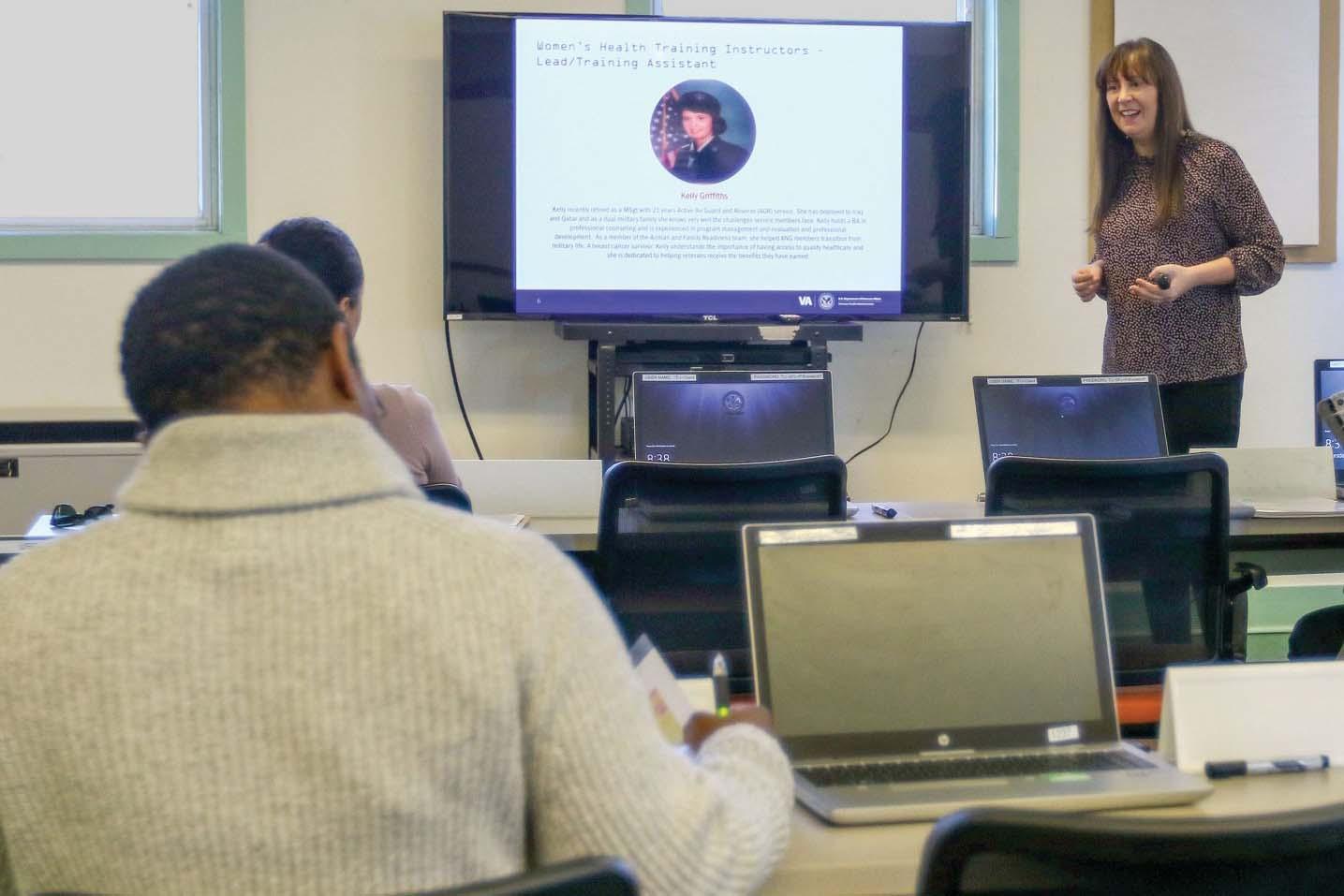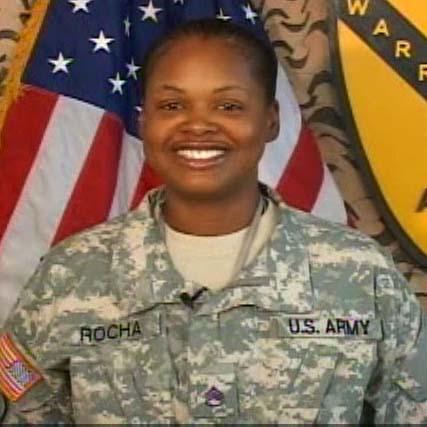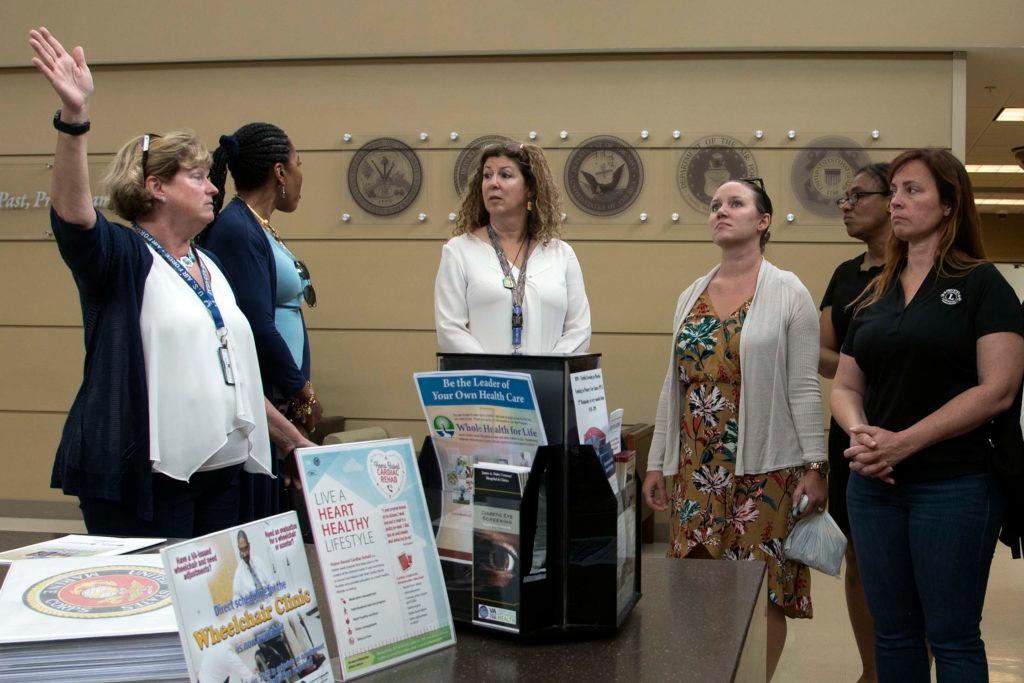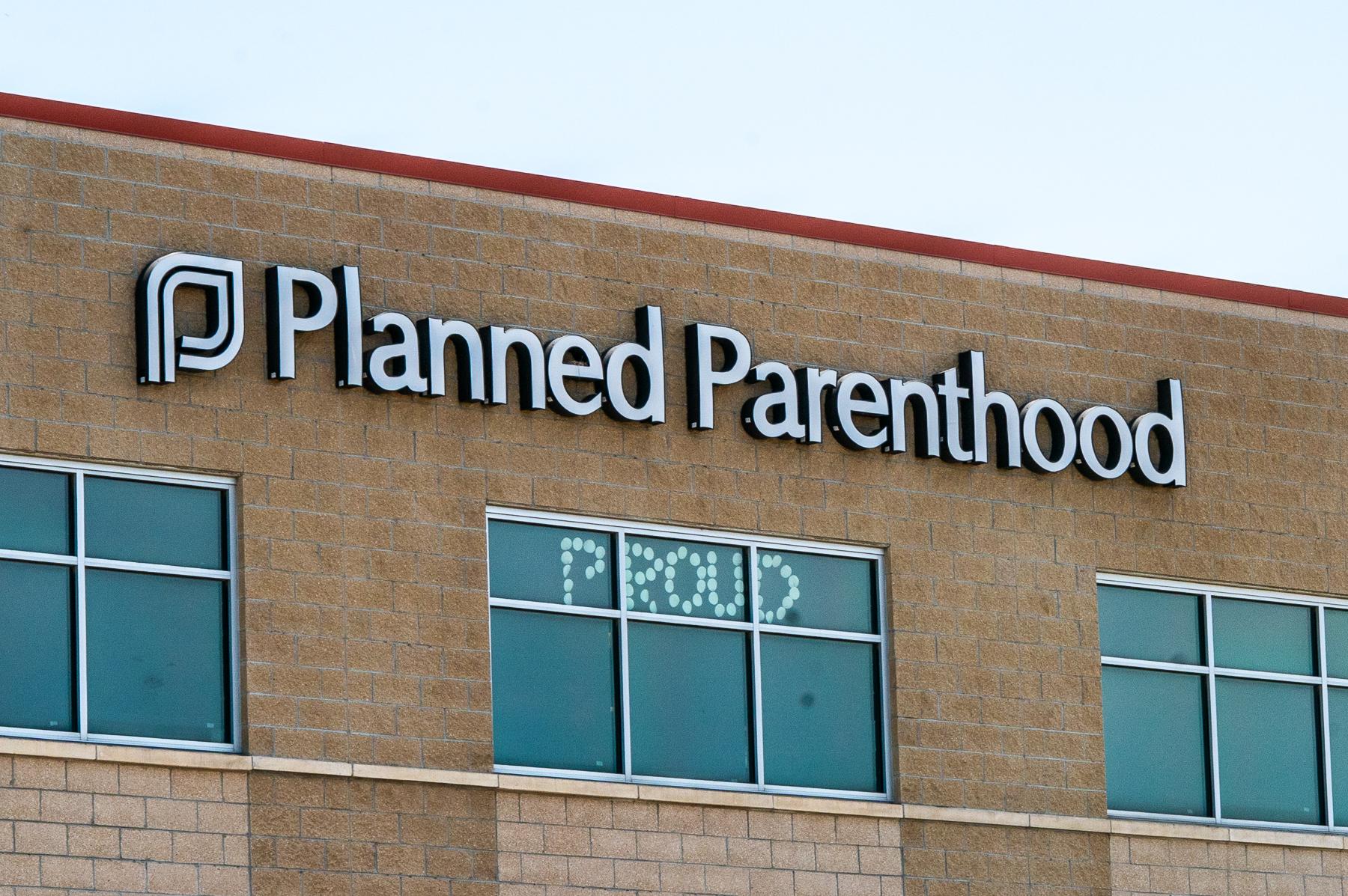
In 2019, 20,000 women transitioned out of the military, making them the fastest-growing cohort of veterans. Yet compared to men, they're much less likely to get their health care through the Department of Veterans Affairs. On average, they wait longer than men to enroll in VA health care, and at 25 percent, women are under-enrolled in general.

Military health experts say that under-enrollment is not good for women, whose health needs could fall through the cracks as they transition to civilian life and assume responsibility for their own health care, sometimes for the first time in their lives. The VA says women face greater health-related challenges after military service compared to their male counterparts, including chronic pain, depression and suicide.
To convince women that the VA is capable and equipped to meet their health care needs, the agency's Women's Health Transition Training Pilot began offering interactive seminars for female troops about to separate from the military. The sessions are led by female veterans who themselves get health care through the VA.
"(Women) do think that the VA is only for men," said Nancy Maher, who oversaw the creation, implementation, and delivery of the pilot. "They don't think that VA is a quality place to get care. And they're just very unaware of all the health care services that the VA has for women."
For decades, women were an afterthought
Larrie Rocha was one of these women. A soldier who plans to retire in September after a 20-year Army career, she was initially hesitant to enroll for VA health care.
"I know a lot of people that are going to be transitioning over this next year. And they're all in the same boat as I am; we sit back and we listen to the horror stories about receiving medical care at the VA," Rocha said. "Everybody's kind of up in the air on what they want to use the VA for and what they don't want to use the VA for."
One reason for the reticence is the fact that women have historically - and even officially - been an afterthought at the VA. One need look no further than the agency's motto: "To care for him who shall have borne the battle and for his widow, and his orphan."
When that motto was adopted by the VA in 1959, women were capped at 2 percent of the enlisted force. Yet as recently as Memorial Day 2020, VA Secretary Robert Wilkie announced plans to install plaques with the slogan in 142 cemeteries across the country.
The VA's focus on men is not the only reason female veterans have not looked to the agency for health care. Women who have served in the military are also less likely than men to think of themselves as veterans.
"I wanted to kind of leave the military behind," said Kelly Griffiths, who retired nearly a year ago after 33 years of military service, mostly on active duty with the Air National Guard. "I didn't want to see a uniform again for a really long time. And so I think if you've struggled a little bit in the military, you're a little worried that it's going to be the same old struggles within the VA."
For others, a distaste for military culture or experiences of military sexual trauma lead them to feel unwelcome or even unsafe in environments that cater to veterans. In recent years, members of Congress and veterans advocates have raised concerns about sexual harassment or sexual assault in VA facilities.

Andrea Goldstein, a staff member on the House Veterans Affairs Committee, said she was assaulted last year in the cafeteria of the V.A. Medical Center in Washington. No charges were filed after investigators found insufficient evidence of a crime, but the high profile case further publicized the VA's image issue when it comes to serving women.
Training sessions help change some women's minds
The Women's Health Transition Training Program seeks to bust women's myths and misconceptions about VA health care. The seminars include an in-depth discussion about female-specific health care offered by the agency, including reproductive services, maternity care, mental health services, newborn care, and gynecological care.
They also cover eligibility and walk women through the steps they need to take to enroll. Unlike typical military training, the sessions are participatory and intimate. Because of the COVID-19 pandemic, they're now being held online.
"Most of the (military) training is 'you listen, we tell you,'" said Col. Robin Neumeier, a U.S. Army Nurse Corps officer who helped get the Army to adopt the training program. "This was much more interactive than most other military trainings."
Griffiths, who is now a lead trainer for the program, said women are happy just to have military training that's geared toward them. "They're just very excited when they leave this training, just knowing that they have a way forward, and they know exactly what they need to do to have that smooth transition."
Maher said it's working. Pilot participants were 39 percent more likely to use VA health care services, and they enrolled for services after a median of 10 days following their separation from the armed services, a 67 percent decrease in median enrollment time compared to the previous year.
With those results, the pilot program was expanded nationally, though Neumeier said convincing the Army was not easy.
"People were not on board," she said. "There's a lot of people (saying) no, this is ridiculous. Why are we doing more? And a lot of this is because women have been historically the invisible veteran."
Neumeier hopes the program will be a stepping stone to the Department of Defense offering specific training for other sub-groups, such as Native Americans.
Rocha said as a woman, the program gave her a change of heart. Hearing about the female-specific care including mental health and counseling offered by the VA persuaded her to enroll.
Tanesha Tumblin is separating from the Marine Corps this summer. She never considered enrolling to get her health care through the VA until she went through the program.
"I definitely need to recognize that the VA is not at all like Marine Corps medical," she said. "They really are out there to help, and there are programs geared towards women."
Then again, not all women find themselves swayed by the VA's targeted sell. Gail Mulleavy will be retiring from a 32-year career in the Navy this October. With a recurrence of breast cancer, the most important factor for her is being able to continue to see the medical professionals who've cared for her in Virginia Beach, Va. If she enrolls in health care through the VA, she won't be able to.
"I think it's very unfortunate that the VA generally does have a bad name for itself," Mulleavy said. "And I find myself very fortunate that I don't necessarily have to use the VA if I don't want to."
This story was produced by the American Homefront Project, a public media collaboration that reports on American military life and veterans. Funding comes from the Corporation for Public Broadcasting.
Copyright 2020 North Carolina Public Radio – WUNC. To see more, visit North Carolina Public Radio – WUNC.

9(MDEyMDcxNjYwMDEzNzc2MTQzNDNiY2I3ZA004))








